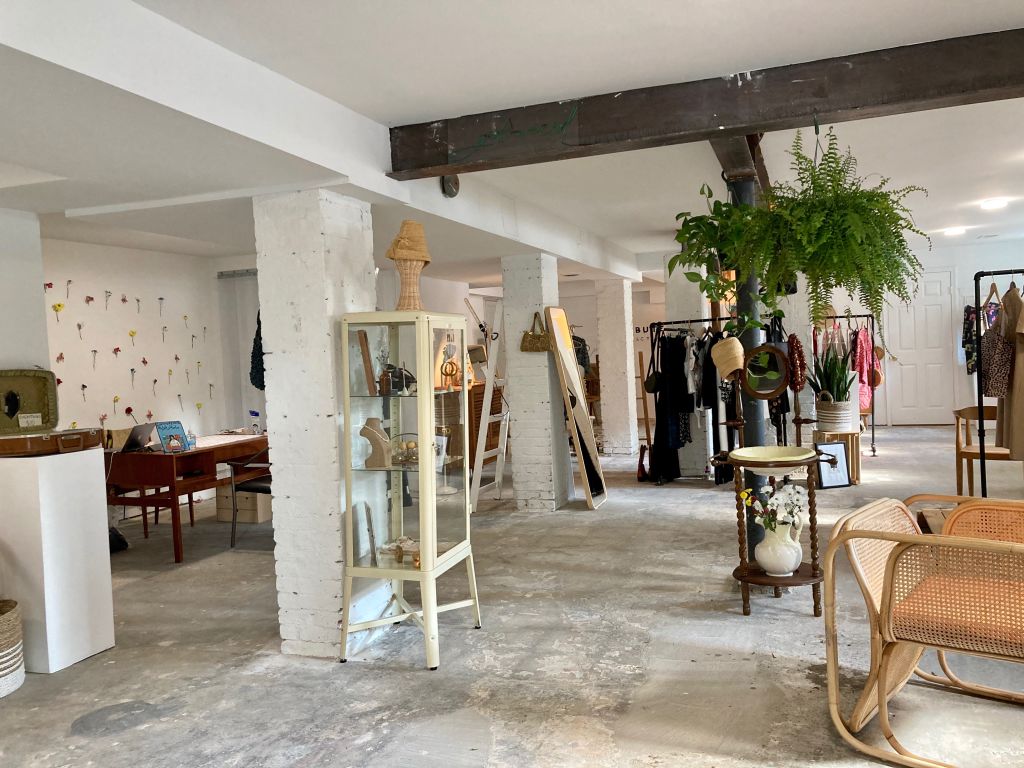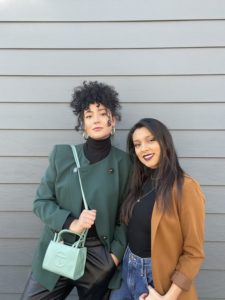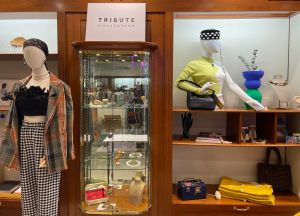Life
 Photo courtesy of Tribute.
Photo courtesy of Tribute.
Advancing Ethical Fashion in D.C.
May 13, 2022 @ 11:00am
The practice of sustainable fashion is multi-layered, but swap shops and upcycling workshops are a no-brainer when it comes to ditching fast fashion. In Washington, collectives that promote ethical fashion are encouraging locals to think critically about their individual consumption habits.
It’s widely reported that the fast fashion industry accounts for 8-10% of global CO2 emissions, as revealed in a widely circulated UN report on sustainable fashion in 2020. On top of this, the industry produced 2.1 billion metric tons of carbon in 2018 — the same quantity of greenhouse gasses produced by Germany, the UK and France combined, McKinsey reported.
Fashion Group International, Inc. is a global non-profit organization that hosts a total of 5,000 high profile members in the fashion industry across the world. In Washington, the group has turned its eye toward sustainability, underscoring the importance of strengthened ties at the community-level to change consumption habits.
Shelby Davies-Sekle, the regional director of Fashion Group International’s DC Chapter said that while discussions about the detrimental effects of fast fashion on the climate are far from new, Cop26 instilled a revived sense of climate urgency that necessitates change within the fashion industry.
In referencing the summit, “a big, huge project like that could be intimidating,” Davies-Sekle said. “It can be a gradual process. It’s not like you need to snap your fingers and you’re automatically the most sustainable brand on the planet.”
Fashion Group International is a global organization, but Davies-Sekle said what’s so special about the individual chapters is, “our members and everyone in this community is connected together to be able to share these learnings together.” Ultimately, this dynamic is a catalyst for fashion industry representatives across the world to spread education of eco-conscious fashion at the local level.
Changemaker collectives in Washington are a stronghold of community support for change within the fashion industry. The desire to engage people in conversations about building a sustainable fashion economy has attracted a community of ethical fashion supporters.
Notable collectives in Washington that serve to promote sustainable fashion by way of second hand and ethically-sourced clothing include the DC Sustainable Fashion Collective, Circlevibe DC and Tribute.
The DC Sustainable Fashion Collective
Gabrielle Clary is the co-founder of The DC Sustainable Fashion Collective, an organization that promotes inclusive engagement around the DMV’s emerging fashion industry. Ahead of the group’s creation in 2018, “we knew that there are people around D.C., Maryland and Virginia that are trying to bring in more sustainable practices with their fashion,” Clary said.
Since Cop26, projections for the U.S. second-hand clothing industry expect market value to increase by 114% from 2021 to 2025, ThredUp estimated. In 2021 alone, 29% of Americans purchased second-hand clothing — a figure which amounts to over 100 million individuals, the company also measured.
At the local level, The DC Sustainable Fashion Collective noticed an upward interest in sustainable fashion in Washington. “We knew all of these people who wanted this kind of sustainable fashion economy, and we wanted to have that discussion started,” she said.
The growing popularity of sustainably-sourced and second hand fashion in Washington inspired the group to co-create The Good Map of D.C. in partnership with Fashion Revolution US, DC Vegan Life, Tribute and Remake. The interactive map allows users to browse local businesses that practice a sustainable ethos.
The Good Map. Courtesy of the DC Sustainable Fashion Collective.
The group recently held a roundtable discussion on sustainable fashion and the next generation, and will host a film screening of “Through a Darkly Lens: Photographers and the Embrace of a People” on May 21 at Eaton DC.
Circlevibe DC

Juliana Jaramillo and Paula Espitia. Photo courtesy of Juliana Jaramillo.
Juliana Jaramillo and Paula Espitia are the founders of Circlevibe DC, a collective that supports sustainable fashion choices. The group hosts clothing swaps and information sessions that educate Washingtonian’s on the harmful environmental and social effects of the fast fashion industry.
Circlevibe DC hopes to discuss the realities of the industry through more approachable conversations on changing individual habits.
“How do you make this topic a less heavy, more casual conversation, and more about teaching people about labor and how the fashion industry affects people in other countries?” she asks.
Ultimately, it’s about creating “an environment that is very apt for people to really absorb this information in a more casual way, in a conversational way,” said Jaramillo.
One of the primary initiatives that Circlevibe DC runs is the creation of a capsule wardrobe, a highly curated set of clothing items that limits the need to consume fashion products elsewhere, she said. At the swap shops, people can trade clothes between each other, allowing them to change up their style without expanding their carbon footprint.
Tribute
Tribute is a collective and retail platform that promotes the consumption of ethical fashion in Washington. By supporting socially and environmentally responsible labels, the group demonstrates that cultivating personal style and ethical considerations can go hand in hand.
Joelle Firzli, one of the founders of Tribute, said in continuing the conversation of sustainability within Washington’s fashion space, engaging with the community whilst maintaining inclusivity is tenfold. At its core, the collective brings “people from different backgrounds together [to realize] that they can meet and talk about creating a new story around fashion,” Firzli said.

Photo courtesy of Tribute Collective.
Tribute is currently hosting The Good Pop Up at a brick and mortar in Dupont Circle. On May 15, the collective is organizing an upcycling workshop in collaboration with the sustainably-minded home goods label Relume Co.
Together, these changemaker collectives convey that national trends toward ethical fashion can be realized at the local level. Nine months after Cop26, these initiatives foster optimistic outlooks at the local level that will hopefully create large-scale change within the American fashion industry.
DC Sustainable Fashion Collective: @dcsfcollective
CircleVibe DC: @circlevibedc
Tribute Collective: thisistribute.xyz // @thisistribute







